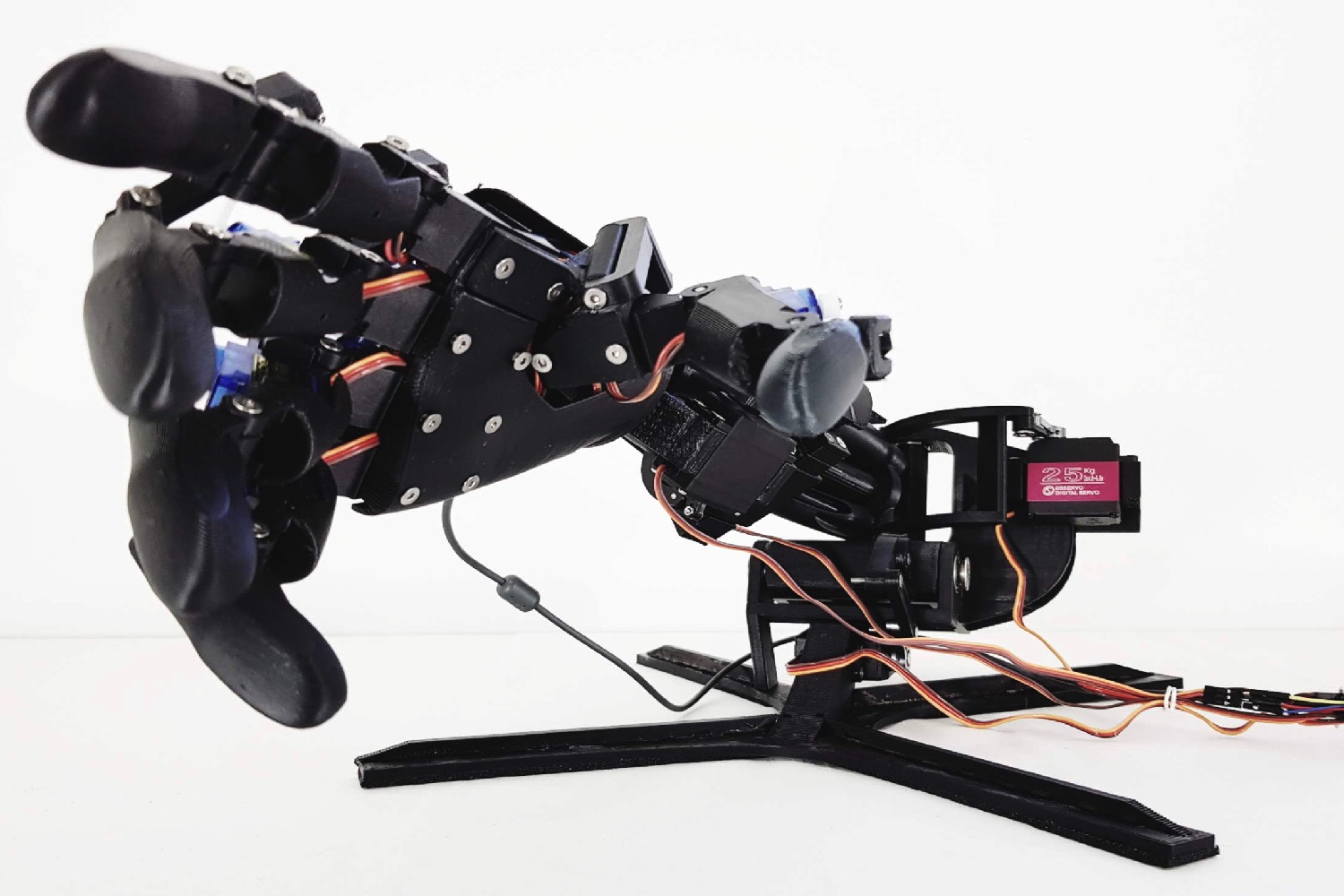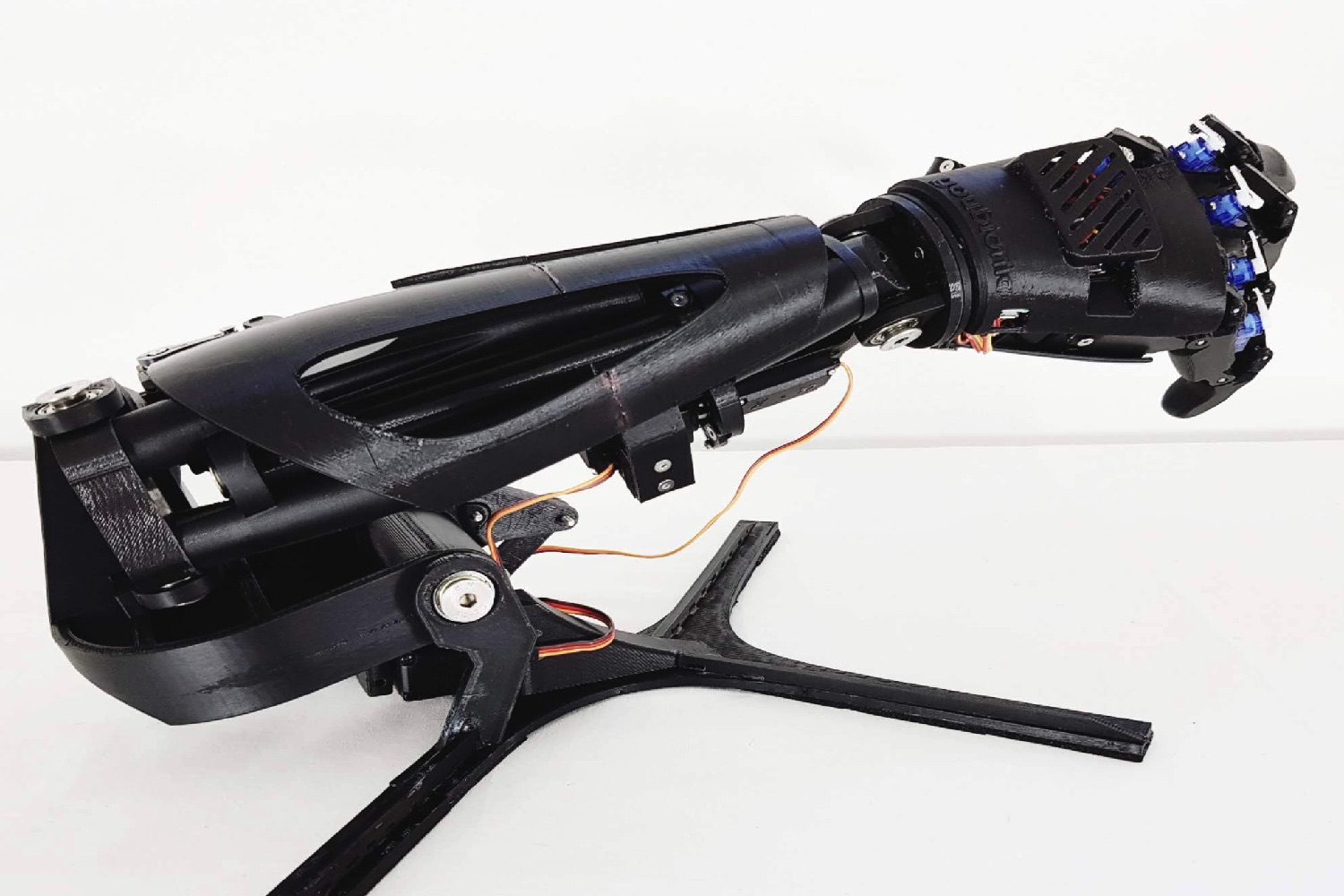We’ve covered all kinds of amazing robot arm projects at Digital Trends over the years. While they have featured plenty of awesome tech and some pretty impressive use cases, these robot arms have also carried a high price tag stretching into the thousands of dollars. That’s something that Federico Ciccarese, the engineer behind low-cost robotic arm company Youbionic, is working hard to change.
We first wrote about Ciccarese’s work in 2014. At the time, he had developed a plastic hand attached to an electronic switchboard that resembled a robotic version of “Thing” from The Addams Family. Since then, Youbionic has expanded in all sorts of weird and wonderful new directions. This week, he unveiled his latest version: A new robot hand and forearm that shows just how far the concept has developed.
“Compared to previous devices, this is the first to be able to move objects in space,” he told Digital Trends. “This makes it usable in a wide range of situations. It could be used by law enforcement in dangerous situations, in rescue operations, in the medical field, on assembly lines in the industrial sector, and so on. We have carried out a meticulous study of the human arm, both for the proportions and structure, but also for the movements, accelerations decelerations, movements, etcetera.”
While some of the use cases Ciccarese talks about are still hypothetical, as the video up top shows, this robot is capable of some impressively fine-grain movements that could make it a useful tool for remote operations. All of this is achieved using components that cost less than $250. If you’re looking for a robot arm to try building and programming from the comfort of your bedroom, this may be the appendage for you.
“I think this price reduction allows access to a much wider audience,” Ciccarese said. “In the near future, we could have robotic arms for the price of a smartphone. Makers and developers could then create applications dedicated to them. Potentially, we could soon have robots that wash dishes or do laundry in each of our homes.” An app store for robot arms? That’s something that could be a whole lot of fun.
If you’re interested in getting your hands on Ciccarese’s, err, hand, the documentation is available for purchase on his website for $97. This includes the necessary 3D-printing files and instruction manuals you’ll need to build your own version. The components — such as servo motors and Arduino — can be easily tracked down online.







